‘The Swimmers’ illustrates how to beat the odds

“The Swimmers” (2022). Cast: Nathalie Issa, Manal Issa, Ali Suliman, Ahmed Malek, James Krishna Floyd, Nahel Tzegai, Matthias Schweighöfer, Kinda Alloush. Director: Sally El Hosaini. Screenplay: Sally El Hosaini and Jack Thorne. Web site. Trailer.
However, circumstances change drastically over the next four years as Syria’s civil war heats up. By 2015, conditions become treacherous, as seen in an attack on an aquatic center where Yusra is competing in a swim meet, a harrowing experience in which she’s forced to dodge bombs as they drop into the pool. But that’s not all: power outages, invasive public searches by lecherous, leering soldiers, and mounting difficulty doing even the most basic routine tasks all make everyday living increasingly unbearable as missiles zoom overhead. And that doesn’t even take into account Yusra’s rapidly disappearing dream of becoming an Olympian.
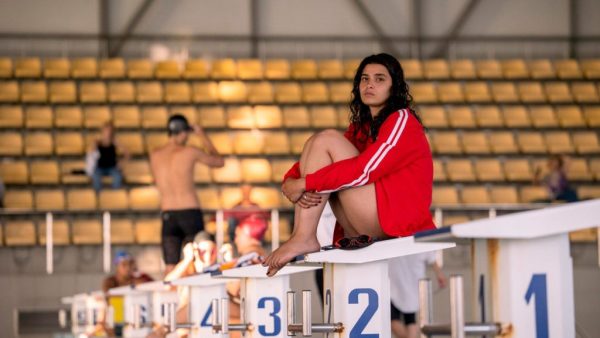
As the conflict intensifies, thousands of Syrians begin fleeing the country, seeking to make their way to Europe to find safety. Germany soon emerges as the preferred destination, given its generous assistance to refugees, including an asylum program open to those under 18 that allows them to stay and enables their families to emigrate there for reunification. Sara and Yusra, who’s now 17, plead their case to their parents about joining the exodus, hoping they’ll reach Berlin while Yusra is still eligible to file for asylum for her family. However, considering the dangers of the journey, Ezzat and Mervat are skeptical about their daughters’ proposal, but the girls are emphatic, contending that the window of opportunity for escape is closing with Yusra’s upcoming birthday. It’s also an undertaking Yusra believes she must pursue if she’s to keep her Olympic dream alive.
Realizing that Yusra and Sara don’t have many options open to them, Ezzat and Mervat reluctantly agree to their request, but they insist that they have a male chaperone accompany them in light of the dangers that lie ahead. So the sisters tap their cousin, Nizar (Ahmed Malek), to join them on their trek. And so, before long, the three freedom seekers embark on a journey that they hope will give them everything they’re looking for.
The film then follows the trio as they make their way from Syria to Europe. Their travels start off rather comfortably on a flight from Damascus to Istanbul, Turkey. But, once they reach that jumping off point, circumstances grow considerably more questionable and uncertain, beginning with a precarious Mediterranean Sea crossing to Greece in a rubber raft overloaded with refugees – and that necessitates the sisters having to draw upon their natural athletic talents to help them and their peers survive. They then make their way through the Balkans, largely on foot and occasionally separated from one another, often facing a variety of hazards from authorities, police dogs and sleazy opportunists.
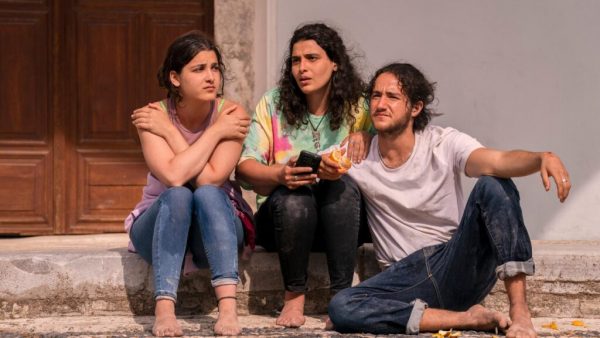
As this ordeal unfolds, however, Yusra, Sara and Nizar learn much about themselves. That’s particularly true when it comes to discovering the depth of their resilience, fortitude, stamina and resourcefulness. They also make new friends, such as Emad (James Krishna Floyd), a refugee from Pakistan, and Shada (Nahel Tzegai), a young mother from Somalia fleeing her abusive husband with her young infant in tow. Together they foster a camaraderie that helps to make the journey more bearable, especially in providing valuable assistance to one another when the need arises. It all eases the difficulty of this undertaking – and helps to keep everyone focused as they move ever closer to their goal.
Upon their arrival in Berlin, Nizar and the sisters at last heave a huge sigh of relief. They once again enjoy accommodations more comfortable than anything they’ve had in ages. And they meet with compassionate officials who genuinely seem to have their best interests at heart, both in fulfilling their immediate needs and helping to start the process of bringing their family out of Syria. What’s more, it’s not long before Yusra meets a swimming coach, Sven (Matthias Schweighöfer), who’s impressed by her abilities and is willing to help train her for competition, including a possible Olympic bid.
More good news arrives shortly thereafter when the International Olympic Committee announces that it has authorized the formation of a team for refugee athletes, those who are talented enough to compete but hail from countries that are unable to send a delegation to the Rio games. Sven is thrilled to tell Yusra that she qualifies for that opportunity, though she’s hesitant, insisting that she wants to compete for Syria. However, given that such a treasured possibility won’t happen, Yusra must now decide whether she’ll participate under the conditions being offered to her or hold out for something that’s unlikely to ever happen. She earnestly has to ask herself, “Is this worth everything I went through, or am I unwilling to settle if I can’t make things happen on my terms?” It’s a decision for her that’s almost as difficult as the circumstances she endured to reach this point. So what will she do?
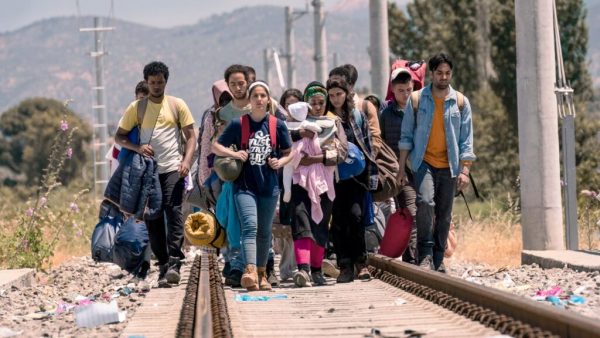
In the process of doing this, it’s amazing how much we can learn about ourselves. For instance, as noted earlier, Yusra and Sara develop a newfound appreciation for the innate qualities they possess, attributes that had been lying dormant and were waiting to be unleashed. The resilience, fortitude, stamina and resourcefulness they unearth not only serve them well during their journey to Europe, but these traits also show them what they’re capable of in the face of subsequent challenges. They learn how to bounce back from – and surmount – adversity. They understand how to push past fears and limitations to come up with solutions needed for addressing the tasks at hand. And they understand how to get creative when conventional approaches are insufficient. In essence, they develop a new belief-based skill set that enables them to grow and develop in ways that they may have never thought possible.
This is especially intriguing when it comes to the relationship between the sisters. For many years, they were looked on as two peas from the same pod, even though they were fundamentally distinct from one another despite some common attributes, such as their love of swimming. This is apparent in Ezzat’s monodimensional view of his daughters; rather than seeing them as the multifaceted individuals they are, he looks upon them primarily from this singular viewpoint. Over time, however, the differences in their abilities in the pool evoke more than their share of unfair (and personally deflating) comparisons, especially for Sara when Ezzat repeatedly draws attention to the superior performance of her younger sister.
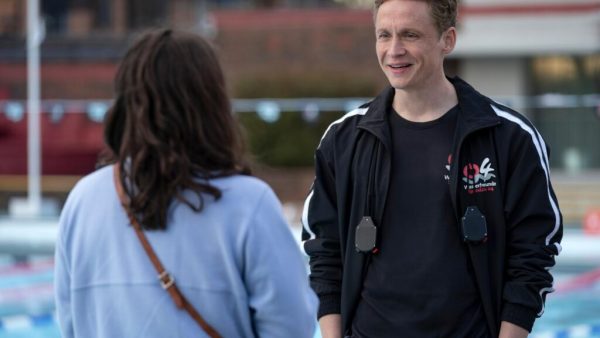
This leaves Sara in a position of having to discover herself. What distinguishes her as an individual? What talents does she bring to the table? She may share Yusra’s love of swimming, but she clearly isn’t as proficient as her sibling. So what can she do to make herself stand out? Sara’s talents may not be apparent at the time she leaves Damascus, but her exodus odyssey allows her gifts to surface and enables her to come into her own, much like Yusra but in different individual milieus. That’s because the beliefs that make those possibilities come to life become apparent to her – and allow her to thrive as her own person. The journey thus becomes a win-win scenario for all involved.
The overall experience also proves valuable for both sisters when it comes to learning how to make use of their capacities for discernment and discretion, especially when it comes to evaluating their choices, making decisions and understanding which beliefs they need to embrace in the implementation of these options. For Yusra, this becomes apparent in the decision she must make when it comes to choosing whether or not to compete as a member of the Olympic refugee athletic team. And, for Sara, this emerges when deciding how to step out of her sister’s shadow and into her own limelight. It’s a skill that serves them well not only in this situation, but that will also aid them as they get on with their lives.
The upshot of all this is that it allows us to become the individuals we’re meant to be, reflections of our true selves seeking to implement our personal destiny. In conscious creation circles, this is known as living out our value fulfillment, being our best, truest selves for the betterment of ourselves and those around us. In doing so, we make it possible to inspire others, perhaps even touching them in meaningful ways, uplifting them to new heights of satisfaction and fulfillment while simultaneously doing the same for ourselves. Who would have thought that all of this would have arisen just by spending some time in the pool?
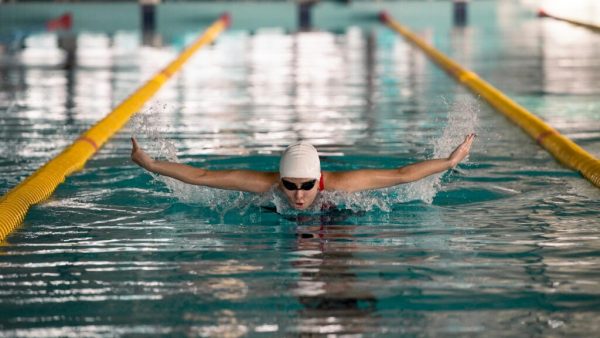
There’s something truly inspiring about beating seemingly impossible odds, accomplishments that stir our emotions and may even produce a significant adrenalin rush. Such are the feelings evoked in writer-director Sally El Hosaini’s new fact-based chronicle about a pair of sisters who fled their war-torn Syrian homeland to seek sanctuary in Germany. While this BAFTA Award nominee for Best British Film runs a little long (especially in the depiction of the sisters’ flight to freedom), the picture nevertheless shines a bright light on the global refugee crisis (and not just among those fleeing Syria) and what’s attainable when we set our minds to taking on imposing tasks. This Netflix offering certainly delivers an uplifting message, as well as a candid look at sibling relationships and how they evolve over time, a dynamic effectively brought to life by the casting of real-life sisters in the lead roles. Admittedly, the picture tends to be somewhat formulaic at times, but its compelling story and creative cinematography do much to sell the film as a genuine crowd-pleaser, one that’s particularly empowering to girls, young women and those who dare to dream big in the face of potentially insurmountable challenges.
Dreaming big can be looked upon as both inspiring and foolhardy. And both outcomes are entirely possible. What distinguishes them, though, is how we approach the situation, particularly the beliefs we hold going in. Some would say that our degree of “realism” is the determining factor in such scenarios, but it’s incredible to see how often inspiration trumps this quality. It’s on that point where the power of our beliefs steps to the forefront. To be sure, there’s no point to pursuing objectives backed by unrealistic or unsupported intents, but, when we infuse our efforts with the necessary conviction and enthusiasm, there’s no telling what we can accomplish. It’s at times like that when the sufficiently motivated among us need to dive right in and tackle the tasks at hand. With the right attitude and ample fortitude, we just might surprise ourselves – and everybody else.
Copyright © 2023, by Brent Marchant. All rights reserved.



